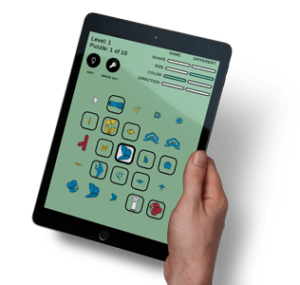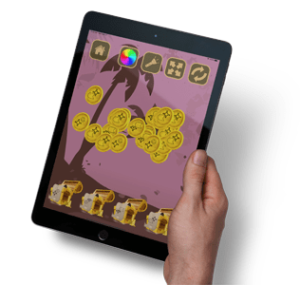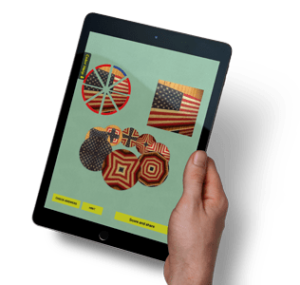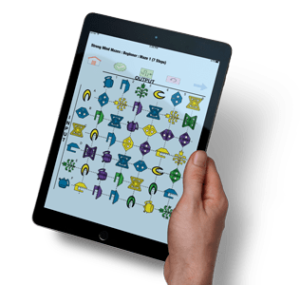At Cobblestone Medicine and Rehab Centres, we use state-of-the-art tools for cognitive remediation geared at enhancing attention and memory — all the cognitive skills that go into optimal daily functioning.
After prolonged symptoms of a concussion, cognitive remediation (also called cognitive rehab or cognitive rehabilitation) is a valuable therapy to help a patient overcome these difficulties. Cognitive remediation treatment can teach long-lasting skills that help restore and maintain everyday functioning. Research has demonstrated that cognitive remediation interventions that incorporated elements of memory, processing speed, and attention led to significant improvements in brain-injured populations. Cognitive remediation treatment incorporates all domains of functioning: emotional, behavioral, and cognitive.
Cognitive rehabilitation is based on the principle of neuroplasticity, meaning that the human brain is not a static organ but can be physically changed. These changes can occur within neural pathways and synapses after exposure to enriched environments. Cognitive remediation provides such an enriched environment.
Physical, behavioral, emotional, and cognitive changes after sustained symptoms of a concussion can be stressful, but with high-quality rehabilitation — both physical and cognitive — a patient can achieve excellent results and a good quality of life.
Here at Cobblestone Medicine and Rehab Centres, we want you back to school, back to work, and back to life! Brief cognitive remediation treatment can help you to get back your confidence in your functioning, teach you strategies to enhance cognitive functioning, and come up with customized strategies to meet your needs at work or school. The end goal is getting you back to a normal, healthy life.
Your brain is constantly exercising, but how much exercise and what type is key. Your brain trains through experience and builds its own “muscle memory” – habituates new patterns of behavior. When you don’t work it, you forget things you once knew, and when you really exercise it, you strengthen what you already know and develop and create new capabilities. We use puzzles because they are not threatening – they allow you to play and explore without pressure. And we use visual puzzles because unlike verbal puzzles, they let you rehearse concrete systems to build critical thinking skills.
These brain games can help those with concussion, traumatic brain injury, stroke, and other neurological challenges gain essential cognitive skills. Everyone can benefit from these brain games!
 Strong Mind Puzzles provides progressively difficult variations and requires the participant to correct their mistakes. This encourages deliberate rehearsal and enhances learning. The rules, graphics, number of icons, and abstract images become more complex as the participant advances to higher game levels. Individuals must use the voice in their head to match the goal and complete the game. The voice in our head (internal dialogue) builds executive skills because it:
Strong Mind Puzzles provides progressively difficult variations and requires the participant to correct their mistakes. This encourages deliberate rehearsal and enhances learning. The rules, graphics, number of icons, and abstract images become more complex as the participant advances to higher game levels. Individuals must use the voice in their head to match the goal and complete the game. The voice in our head (internal dialogue) builds executive skills because it:
Build working memory
Enhance short-term memory and concentration

Strong Mind Treasure Hunt exercises the ability to view information from multiple perspectives.
The participant:
Build the foundation for mathematics and abstract thinking skills
 BYOPuzzles strengthen the right hemisphere of the brain, which is primarily responsible for visual perception. The visual perception skills needed to solve the puzzles include: shape perception, spatial relations, part/whole relationships, detail discrimination, figure ground differentiation, and pattern recognition.
BYOPuzzles strengthen the right hemisphere of the brain, which is primarily responsible for visual perception. The visual perception skills needed to solve the puzzles include: shape perception, spatial relations, part/whole relationships, detail discrimination, figure ground differentiation, and pattern recognition.
Playing BYOPuzzles:
Strengthens concentration
Increases memory
Catalyzes creativity
 Begin Strong Mind Mazes after you complete Strong Mind Puzzles. Strong Mind Mazes includes 4,000,000+ variations. This demands the participant process 7 variables to solve the maze. SMM provides ample rehearsal to strengthen memory, concentration and problem solving. There are 125 levels with a wide palette of colors, patterns and graphics which promote learning and mental agility.
Begin Strong Mind Mazes after you complete Strong Mind Puzzles. Strong Mind Mazes includes 4,000,000+ variations. This demands the participant process 7 variables to solve the maze. SMM provides ample rehearsal to strengthen memory, concentration and problem solving. There are 125 levels with a wide palette of colors, patterns and graphics which promote learning and mental agility.
Source/Reference:
https://www.designsforstrongminds.com
For more information about their great applications and products, please visit their website!
Next time you are in the clinic to see your Cobblestone Medicine and Rehab Physiotherapist, Chiropractor or Occupational Therapist make sure to ask about our Cognitive Rehab Programs!